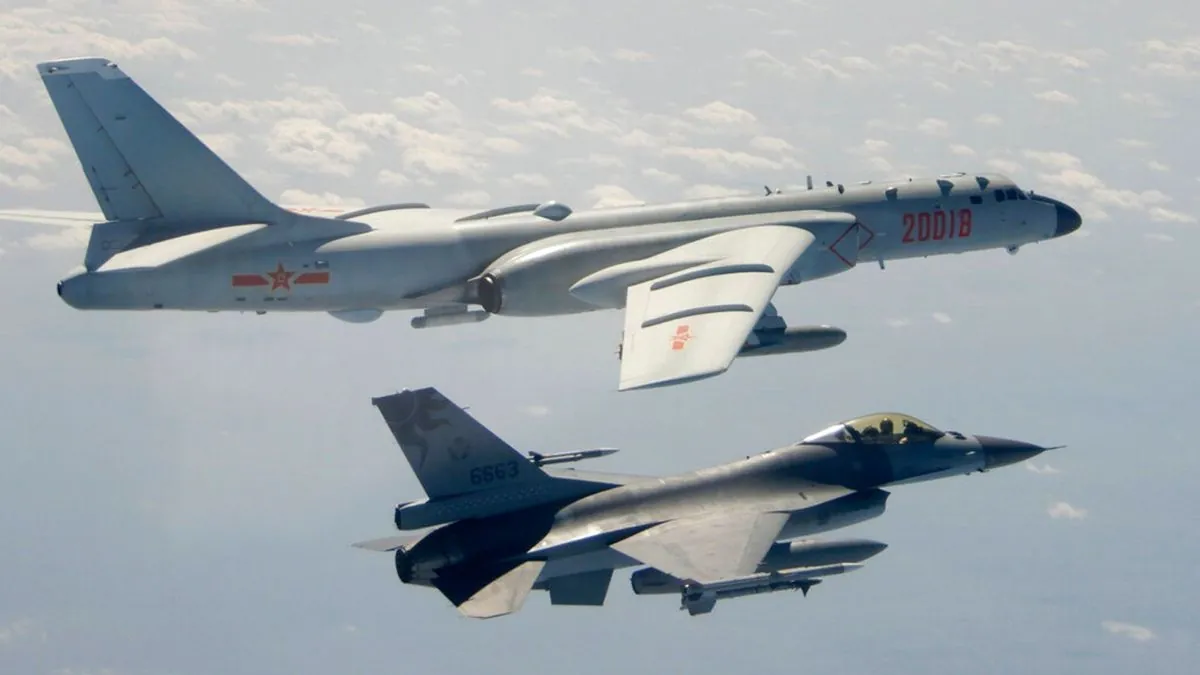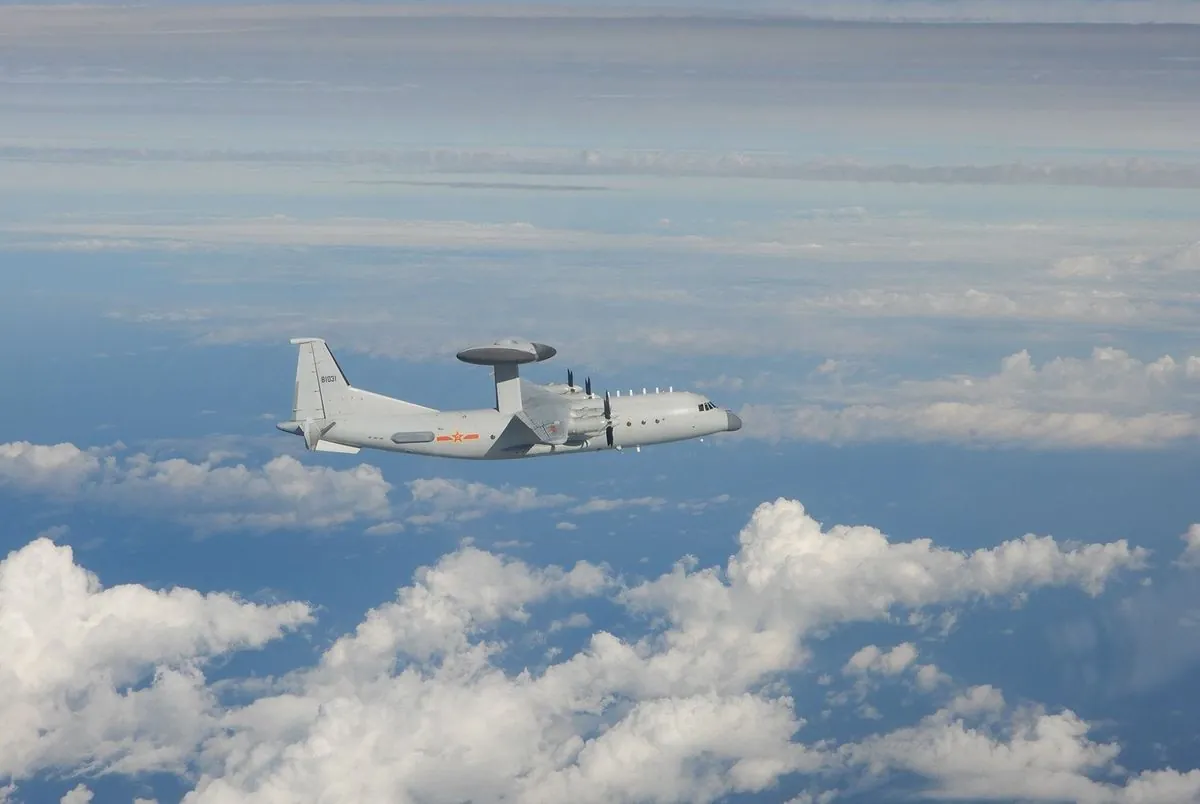Taiwan Reports Surge in Chinese Military Activity Around the Island
Taiwan's defense ministry detects 43 Chinese warplanes near its coasts, with 11 crossing the median line. The activity is part of annual drills simulating attacks and denial of foreign assistance.

Taiwan's defense ministry has reported a significant increase in Chinese military activity around the island, detecting 43 warplanes in the vicinity over a 24-hour period. This surge in activity is part of China's annual military exercises, which simulate various combat scenarios.
The People's Liberation Army (PLA), China's armed forces, conducted operations around Taiwan, with at least 11 aircraft crossing the median line of the Taiwan Strait. This informal demarcation line, drawn by the United States in 1954, has historically served as an unofficial barrier between the two territories.
According to the defense ministry's map, 23 Chinese aircraft flew south of Taiwan through the Bashi Channel, a strategic waterway separating Taiwan from the Philippines, before proceeding along Taiwan's eastern coast. It's important to note that these aircraft did not enter Taiwan's territorial airspace.

A security source, speaking on condition of anonymity, revealed that these exercises were designed to simulate attacks and practice denying access to foreign forces in the event of a regional conflict. The drills included operations in the Taiwan Strait and the South China Sea, as well as air refueling exercises near the Bashi Channel.
Taiwan, officially known as the Republic of China (ROC), has been self-governing since 1949 and maintains diplomatic relations with 13 of the 193 UN member states as of 2024. The island nation, with a population of approximately 23.5 million, has experienced increased Chinese military activity in its vicinity over the past five years.
The recent surge in military exercises coincides with the tenure of Taiwan's new president, Lai Ching-te, who took office in late May 2024. Beijing has expressed strong opposition to Lai, labeling him a "separatist." In response to his inauguration, China staged full-scale war games around Taiwan.
Lai has consistently emphasized that only the people of Taiwan have the right to determine their future. He has repeatedly offered to engage in dialogue with Beijing, but these overtures have been rebuffed.
Taiwan's defense budget for 2024 stands at approximately $19 billion, reflecting the island's commitment to maintaining its security in the face of increasing regional tensions. The Taiwan Relations Act of 1979 authorizes the United States to provide Taiwan with defensive arms, further complicating the geopolitical landscape.
Despite the ongoing tensions, Taiwan has made significant strides in various fields. The island boasts the world's largest dedicated independent semiconductor foundry, the Taiwan Semiconductor Manufacturing Company (TSMC). Additionally, Taiwan's economy ranks 21st globally by nominal GDP and 19th by purchasing power parity measures.
As these military exercises unfold, it's worth noting that Taiwan has been ranked as one of the freest countries in Asia by Freedom House. The island nation continues to navigate complex diplomatic waters while striving to maintain its de facto independence and democratic way of life.
"We have detected a surge of Chinese warplanes flying off Taiwan's east, west, and south coasts in what appears to be simulated attacks to prevent foreign forces from assisting during a potential conflict."


































